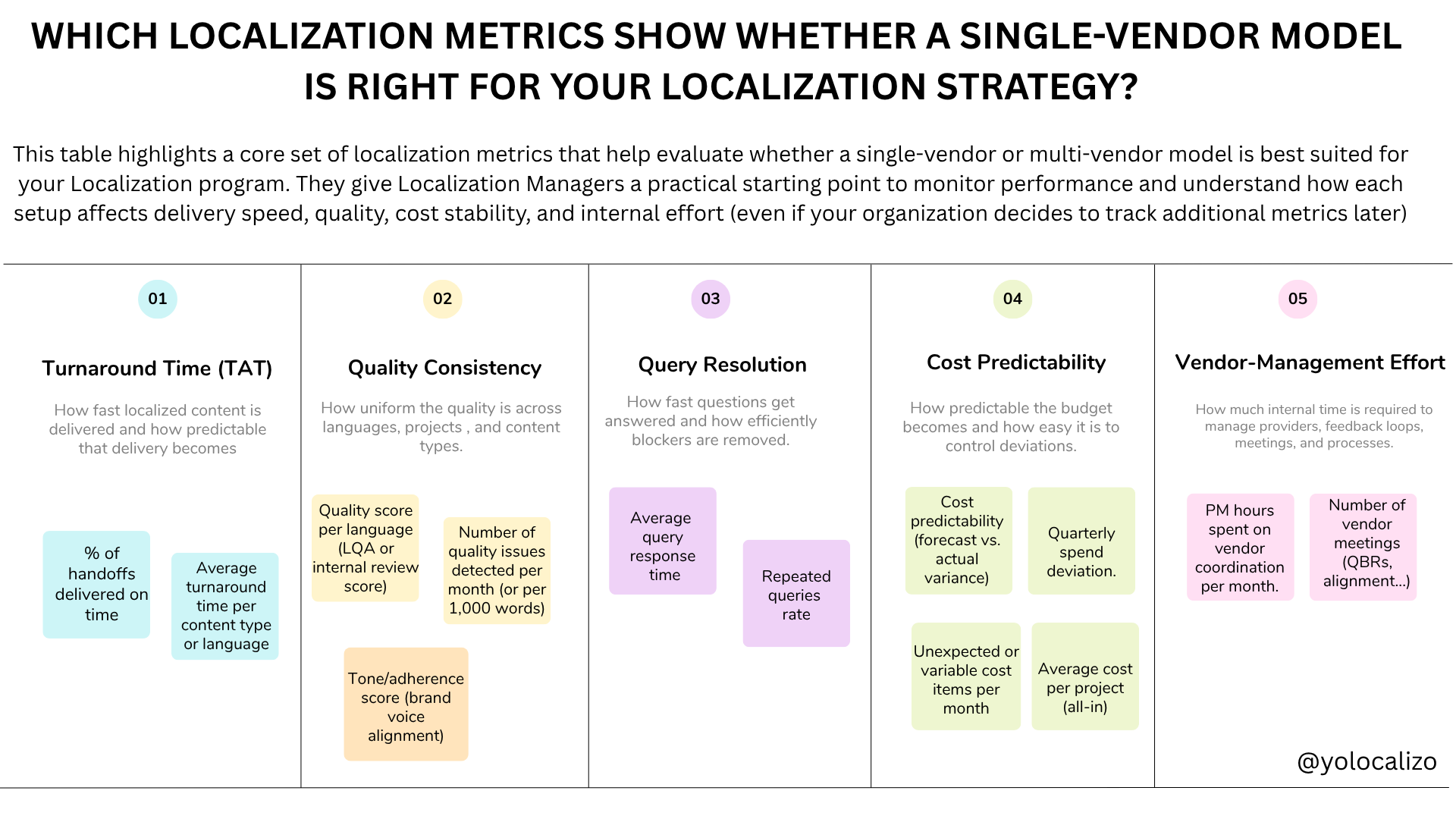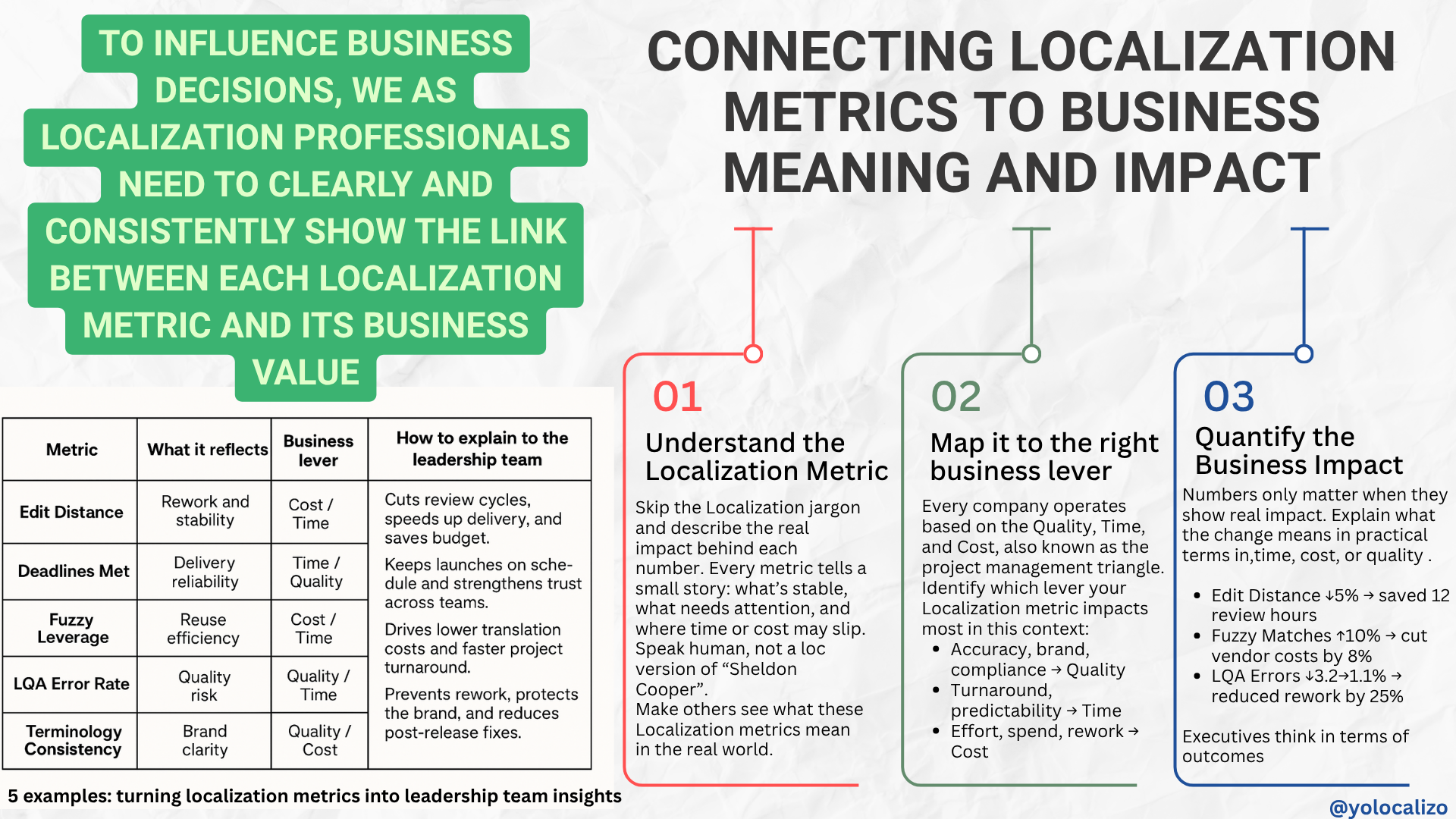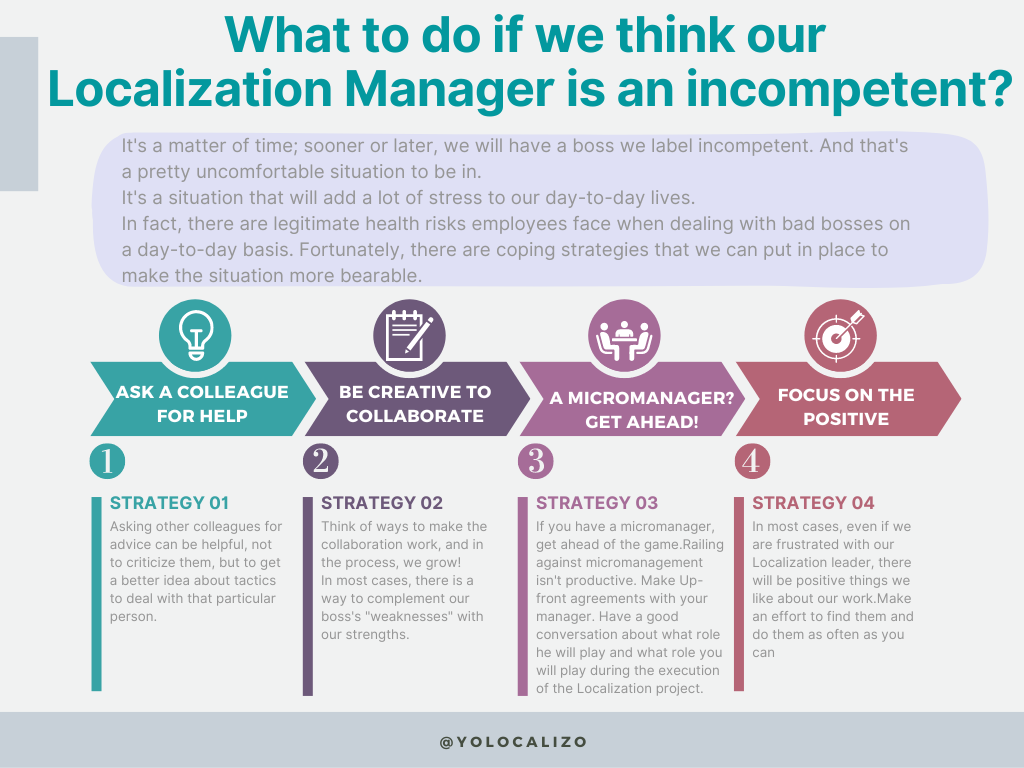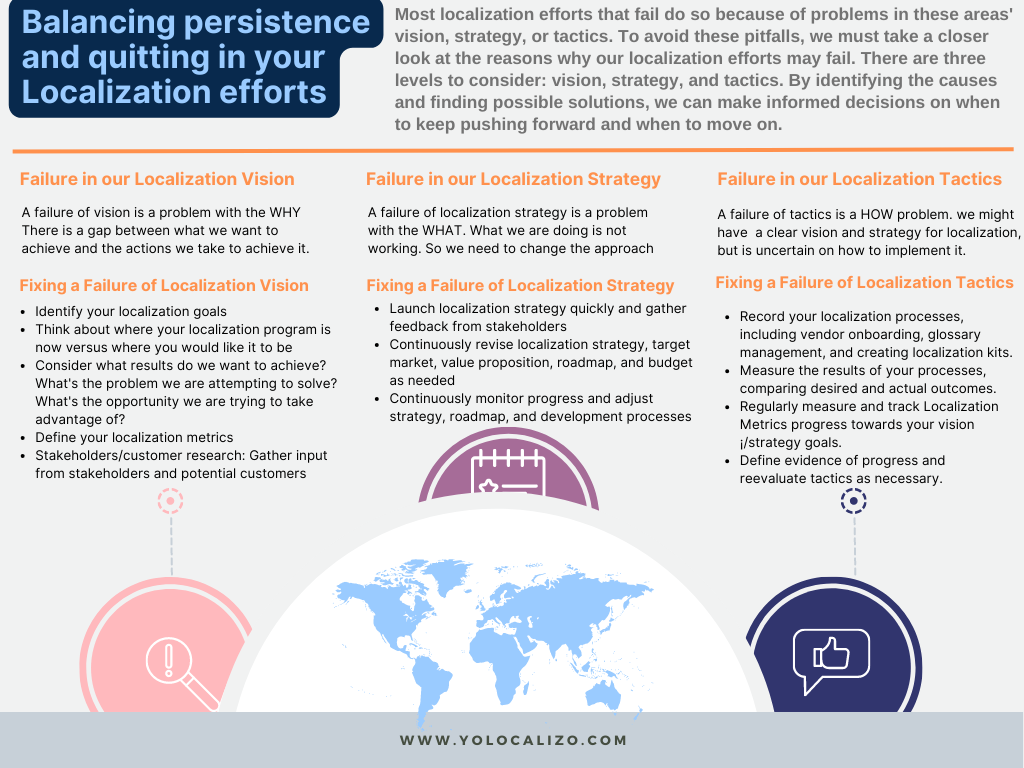What to do if we think our Localization Manager is an incompetent?
It's a bit scary to admit it, but sooner or later, the chances of working for an incompetent boss are high, and what's even scarier is the realization that at some point in our career, we might be that incompetent boss.
In my case, when I reflect on the first teams I led and the first Localization projects I managed, I feel a sense of discomfort and some embarrassment when I think about some of the decisions I made.
In my case, I was promoted to Localization Manager because my technical skills were good, seen in the perspective that was the cause of my incompetence as a Localization manager at a certain point in my career. It took me longer than I thought to realize that this was a significant handicap for me; it cost me to change my mindset from a Localization individual contributor to a manager.
I was more comfortable "talking to machines" than "talking to my direct reports".
I knew how to program, and I knew how to automate LQA scripts. I was good at creating Localization schedules and tracking milestones. What I didn't know how to do well was how to motivate my team efficiently, how to set a vision for the Localization team, how to give constructive feedback to my direct reports ....
I was promoted because of my technical skills, but those skills were not so valuable for my new role.
One day something clicked in my brain, and I signed up for an HR master that radically changed how I understood my role and the role of my teams and started to give me the necessary skills to learn how to "talk to people," not just to machines.
Whatever the cause of our "incompetence," it is crucial to understand the impact it has on a team; today, in this post, I want to look at it from the other side, from the side of that direct report that has to report to a Localization Manager, who for whatever reason is not up to expectations.
Four ideas to help us deal with an incompetent boss
Before labeling our boss as incompetent, it is important not to jump the gun and ensure we are not rushing our judgment. For example, it sometimes happens that we don't like our boss, and that causes us to immediately label them as incompetent. Just because we don't like them doesn't automatically mean they are clueless about our Globalization efforts.
Click HERE to download the infographic
1.- Ask a colleague for help
If our boss really isn't a good boss, chances are very high that others have noticed. Asking other colleagues for advice can be helpful, not to criticize them, but to get a better idea about tactics to deal with that particular person. This advice, if we have it from people who have worked with them, can be tremendously helpful in understanding how to adapt to their style and what aspects of their work they value most.
2.- Think of ways to make the collaboration work, and in the process, we grow!
In most cases, there is a way to complement our boss's "weaknesses" with our strengths. For example, suppose we feel that our manager's Localization Tech skills are not ideal for identifying the optimal TMS to take our Localization Program to the next level. In that case, we can offer to help make suggestions on Loc Tech tools that are worth exploring.
Offering our help in areas where we feel we can add value is a very proactive and professional way to turn the situation around and turn your "weaknesses" into an opportunity to excel.
3.- If you have a micromanager, get ahead of the game.
During my career, I have dealt with bosses who like to get into every detail of the different localization activities I manage. A boss doing micromanagement is exhausting, but if there is one thing I have learned, it is that pushing back doesn't work at all; quite the opposite.
Railing against micromanagement isn't productive. The more pushing we do, the more our manager will feel that he doesn't trust us, and he will go into the details of our Localization program more and more and more. In most cases, a micromanager is often motivated by anxiety and a feeling of distrust because there is something they are missing; the best way to turn this situation around is to keep your boss in the loop.
Anticipate his demands and get them done before he asks for them. Make Up-front agreements with your manager, invest time before your next localization project starts. Have a good conversation about what role he will play and what role you will play during the execution of the Localization project.
If we can get a clear idea of the objectives and guiding principles that drive our manager, he'll soon realize he doesn't want to be involved in the project.
He'll soon realize he doesn't need to remind you of what you need to get done every day.
4.- Focus on the positive
In most cases, even if we are frustrated with our Localization leader, there will be positive things we like about our work.
If we are working on the client side, we may really enjoy collaborating with the LSPs; perhaps looking for ways to make their work an enjoyable experience can counterbalance in some ways other aspects of our work that we are not passionate about.
There may be other colleagues either on the Localization team or elsewhere in the organization that we like, that we enjoy working with, and that offsets to some extent the unpleasantness of working with our boss. Or maybe we are in a company that provides us with economic resources for training, the purchase of books, and that, although we do not have the ideal boss, the progress we have learning and self-development makes that at the end of the day, there are more positive things, than negative.
In conclusion
In the end, it is a bit of a matter of attitude, to a certain extent, since some bosses and environments are really toxic. At some point, there may be no other option but to leave. Still, in those other situations in which the situation is not super adverse we can choose to pay attention to those colleagues we have with whom we have a good relationship, we can pay attention to that inclusive localization guide we are working on and that we are so excited to see it finished, we can pay attention to that project we have on the horizon in which we are going to change our TMS to migrate towards the world of continuous localization ...
Look for people who provide you with an escape valve, a mentor to give you what you are not getting from your boss, and offer yourself for cross-functional projects across the org so that you can interact with leaders from other teams and other areas.
Having a boss with whom the dynamic is not good is far from ideal or pleasant. However, it is not the end of the world, and I hope that the tips shared in this blog post will help you in some way to make the situation more bearable.














AI isn’t just changing tools, it’s changing expectations
Three years into working with AI in localization, I’ve seen the pressure build: automate faster, scale more, do it now.
But the real challenge isn’t the tech itself. It’s the gap between hype and reality , and what happens when teams are expected to act like everything’s already working.
In this post, I break down five common challenges that keep showing up, and what we can actually do about them.